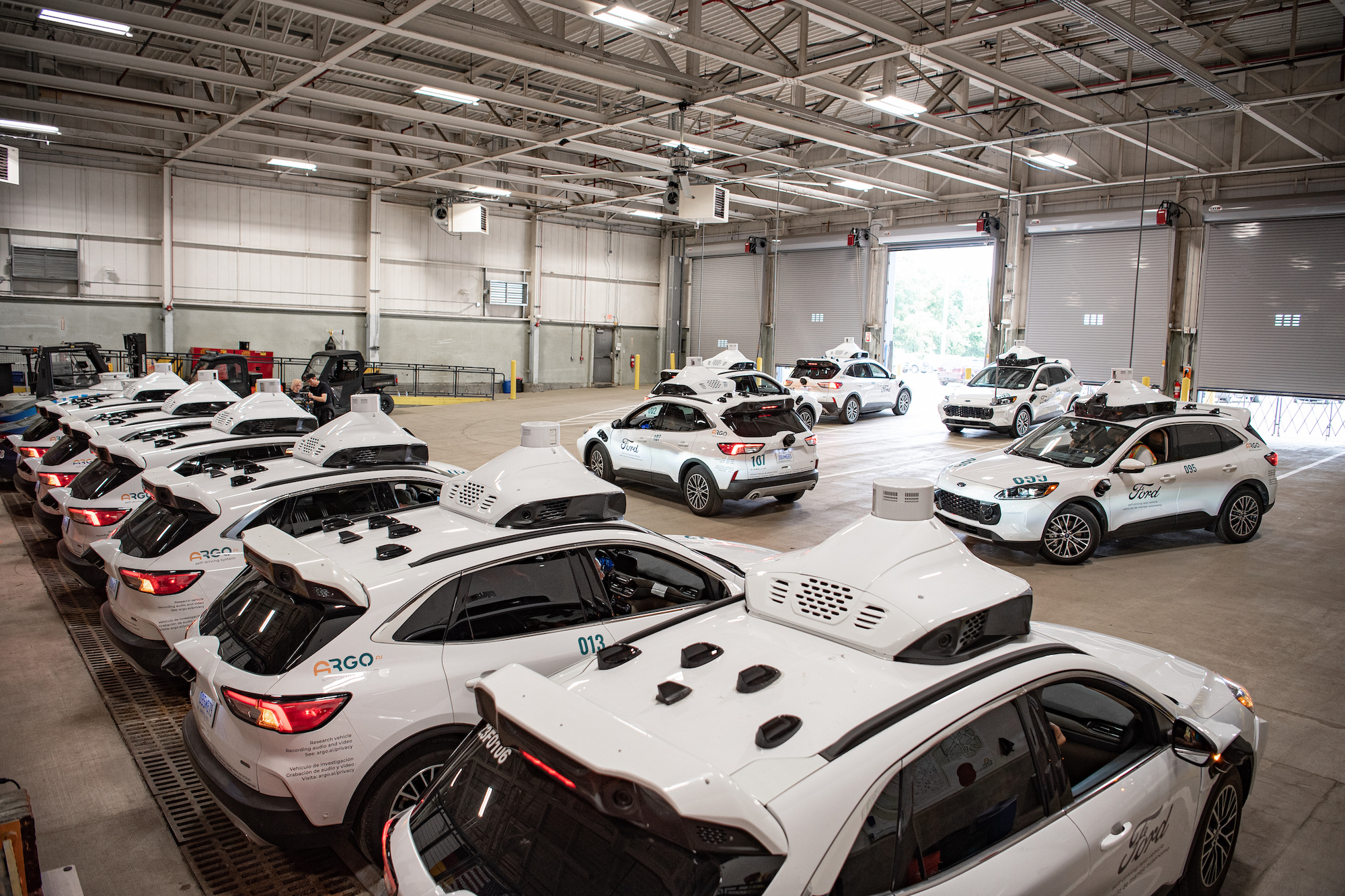Welcome to Startups Weekly, a nuanced take on this week’s startup news and trends by Senior Reporter and Equity co-host Natasha Mascarenhas. To get this in your inbox, subscribe here.
“There’s more dry powder powder than ever before.”
“There’s never been a better time to start a startup.”
“Discipline is the new scale.” (OK, OK, I made that last one up, but didn’t you kind of believe it?).
The tech industry loves generalizations — and don’t worry, I enjoy my fair share too — but as the downturn continues to play out, it’s increasingly important to think about the structural changes that may be forming in the venture capital landscape. Venture firms, unlike unicorns, often don’t have hundreds of employees to cut. Instead, venture firms cut costs in quieter ways.
At TechCrunch Disrupt last week, General Catalyst’s Niko Bonatsos said that venture firms have to go through natural selection cycles and that it will be “survival of the fittest.”
“It’s a very painful activity for anyone who has gone through that stuff,” Bonatsos said on stage with Coatue’s Caryn Marooney. He talked about how the hundreds of new VC firms will either decide to merge with each other to “build a more enduring franchise,” saying some will leave the VC profession and others will lose senior partners to retirement and have tp figure out what the future of their firms will look like.
Tracking personnel activity in venture land offers a few examples. For example, Initialized Capital’s co-founder Garry Tan is leaving the firm to join Y Combinator as president. Tan’s exit is shaking up the firm he helped found. He held down the fort after the firm’s other co-founder, Reddit’s Alexis Ohanian, stepped away in 2020.
Another team that has had its fair share of internal changes over the pandemic is Backstage Capital. The firm cut the majority of staff four months ago, impacting nine of the 12-person team. The layoff comes nearly three months after Backstage Capital narrowed its investment strategy to only participate in follow-on rounds of existing portfolios. This workforce reduction further underscores that the venture capital firm is struggling to grow, both externally due to its lack of dry powder and internally.
Marooney, a GP at Coatue, says that firms “have to earn the right” to survive. “There was the path where you did some investments and made money. It’s like, no, you’ve got to earn the right and not everybody is going to earn that right … and I think that is healthy,” the investor said.
I’ll end with a term we’ve been dancing around all through the intro, which is “quiet quitting.” Bloomberg Beta investor Roy E. Bahat posted a thread describing how seasoned venture capitalists may be quietly going into “easy mode,” aka, becoming a less active, minimum viable player of the team. Maybe their name helps the firm close new funds with LPs, and maybe their calendar doesn’t need to be busy with a ton of introduction calls, just annual investor meetings.
If we combine quiet quitting with natural selection cycles and the difficulty of tracking just how active a venture capitalist is, we experience a confusing, fragmented landscape. No one is incentivized to say that they aren’t doing business as usual, which creates a landscape of extremes.
Sure, there are natural career cycles, but I imagine it is getting harder to track who is doing what and how often in a remote world where a partner at a VC firm has been diluted to mean many, many things. Today, there are the investors doing the ghosting due to the sheer deal flow out there, and there are the investors who are becoming ghosts themselves. Ha.
Just something to keep in mind. In the rest of this newsletter, we’ll talk about Clubhouse, the latest in tech layoffs and why $1 billion in capital can’t save AV tech.
If you like this newsletter, do me a quick favor? Forward it to a friend, share it on Twitter, and follow my personal blog for more content.
Clubhouse and the bird app
One of my favorite interviews from TechCrunch Disrupt last week was with Clubhouse CEO and co-founder Paul Davison. We jumped on the TC+ stage to talk about competition and, of course, what happens when the beginning of your company is defined by hype and celebrities.
Here’s why it’s important: Davison addressed his competition, namely Twitter Spaces, and how Clubhouse views its differentiation long term. As you’ll read in the piece, he’s bullish on a more private version of social audio — a space he thinks will only be won by an app solely committed to the medium instead of committed to a suite of different services.
- Speaking of community, I spoke to Chief’s co-founders Lindsay Kaplan and Carolyn Childers about building a membership club for women leaders and why they have a waitlist despite being a billion-dollar company. We made the Disrupt panel into an Equity episode, so listen to that and enjoy the written recap post by Ron Miller!
- As you know, I co-host Equity, which goes out thrice a week and is TC’s longest-running podcast. We have some besties to listen to, too: including our crypto-focused show that goes by Chain Reaction and founder-focused show that goes by Found. The TechCrunch Podcast is also a can’t miss, so pay attention to all the good shows that they’re putting out.
The tide is shifting on tech’s layoff wave. Kind of.
Over 780 companies cut a portion of their staff this year according to data tracker layoffs.fyi. The workforce reductions have impacted at least 92,558 known people. The real figure is likely higher given reporting delays.
Here’s why it’s important: The same data source suggests that the tide is somewhat shifting on the cadence of tech layoffs. Nearly 70% of people who have been laid off this year lost their jobs during May, June, July and August.
Since the summertime of sadness, staff cuts have decreased. September had half the number of layoff events than August, and in October, new layoff events slowed while people impacted slightly inched upward from August. Read more about how the tide is shifting in my latest for TechCrunch.
- Zillow lays off 300 employees in latest workforce shift
- It’s time to admit self-driving cars aren’t going to happen
Argo AI says bye bye
Transportation editor and one of my favorites Kirsten Korosec broke major news this week: Argo AI, backed by Ford and Volkswagen, is shutting down. The autonomous vehicle startup raised $1 billion after launching in 2017.
Here’s why it’s important via Korosec: Commercializing AV tech has always been a capitally intensive game, meaning the barrier to entry is more like a wall than a speed bump. The winds have shifted over the past two years toward driver assistance systems and monetizing passenger vehicles that exist today.
- By the way, subscribe to Korosec’s newsletter, The Station, a weekly dispatch on all things transportation. She’s also on Twitter.

Image Credits: Argo AI
Seen on TechCrunch
Duolingo’s owl will now shout fractions at you
Twitter’s Elon problem could soon become Apple’s Elon problem, too
Thoma Bravo, Sunstone Partners to acquire UserTesting for $1.3B and combine it with UserZoom
Seen on TechCrunch+
The UserTesting sale to private equity is bad news for unicorns
How to raise funds when you aren’t in the Bay Area
Dear Sophie: How can early-stage startups improve their chances of getting H-1Bs?
Big Tech falls short in the first salvos of the Q3 earnings cycle
The lack of VC funding to women is a Western societal shortfall
Same time, same web page, next week?

Image Credits: Bryce Durbin / TechCrunch
Venture capital will soon be brimming with ghosts by Natasha Mascarenhas originally published on TechCrunch















 English (US) ·
English (US) ·